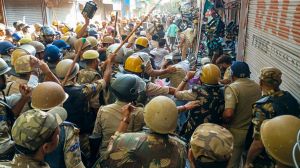Nothing fishy about this award!
Aquaculture was a dying art in the Malda district of West Bengal. Until a farmer named Dipak Roy, a resident of the remote village of Beldan...

Aquaculture was a dying art in the Malda district of West Bengal. Until a farmer named Dipak Roy, a resident of the remote village of Beldanga, stood up and asked to be counted.
Over the past five years, he has developed a technique of aquaculture that is targeted specifically at conservation of several endangered fish species like Notopterus chitala and Puntius sarana.
He has developed a technique using ‘partial harvesting system’ and ‘recycling’. In layman’s language, that essentially means getting the water conditions right for the survival of these fish. With the basics taken care of, Roy found that little needed to be done to take care of the survival of these almost-extinct species.
As his experiments paid off, Roy took to supplying his expertise and fish seeds and fingerlings to various states including West Bengal, Orissa, Andhra Pradesh, Tamil Nadu and Assam. He has even conducted awareness camps for protection of threatened fish species for the rural poor.
Slowly, from almost zero, the net income from fishes has grown to Rs 3.5 lakh a year in the village. He has helped 125 people to become self-employed and helped revive the fishing industry in the area.
According to one estimate, he has benefited nearly 5,000 families.
While his success story has been distributed in pamphlets all over West Bengal, the crowning moment came earlier this week, when he was awarded the Jagjivan Ram Kisan Puraskar 2003 by the Indian Council for Agriculture Research.







- 01
- 02
- 03
- 04
- 05
























